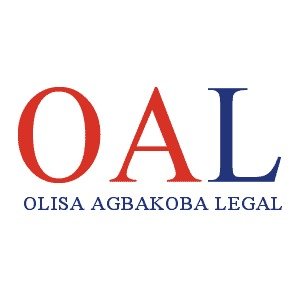Best Military Law Lawyers in Lagos
Share your needs with us, get contacted by law firms.
Free. Takes 2 min.
List of the best lawyers in Lagos, Nigeria
About Military Law in Lagos, Nigeria
Military law in Lagos, Nigeria, like in other parts of the country, governs the conduct of members of the Nigerian Armed Forces. It includes the regulations, legal statutes, and protocols under which military personnel operate. The law is designed to maintain discipline, order, and effective command within military ranks. Military law is distinct from civilian law, although it sometimes intersects, especially when issues involving civilians arise. It applies primarily to issues of conduct both in peace and wartime and is shaped by military needs and service exigencies.
Why You May Need a Lawyer
Engaging a lawyer well-versed in military law may be necessary for various circumstances. For instance, if an individual faces a court-martial or disciplinary actions, legal advice is crucial. Lawyers can also assist military personnel contesting administrative decisions, such as unfair dismissals or denial of benefits. Those needing help with understanding military obligations, such as deployments, or seeking compensation for injuries during service, might also require legal assistance. Additionally, civilians involved in cases with military implications, like protests on or near military installations, might also need legal advice specific to military law.
Local Laws Overview
In Lagos, military law operates under the framework of Nigerian military statutes, primarily the Armed Forces Act. This body of law governs the operations and conduct of the Nigerian Army, Navy, and Air Force. Lagos, being a hub for numerous military installations, deals frequently with issues like civilian-military relations and rules of engagement. Nigeria's constitution also influences military law, ensuring that service members' fundamental rights are protected, with specific regulations laid out regarding service obligations, conduct, and court-martial proceedings.
Frequently Asked Questions
What is the Armed Forces Act?
The Armed Forces Act is the primary legal document governing the conduct, rules, and administration of the Nigerian Armed Forces, including the Army, Navy, and Air Force.
What happens during a court-martial?
A court-martial is the military's version of a criminal trial, dealing with offenses committed by military personnel. It follows specific procedures and may involve charges such as insubordination, desertion, or conduct unbecoming of a service member.
How are military offenses classified?
Military offenses are typically classified into serious and minor offenses, with serious offenses often leading to court-martial and minor offenses handled through summary trials or disciplinary measures.
Can civilians be subject to military law in Lagos?
Generally, civilians are not subject to military law. However, in specific situations, such as interactions or infractions involving military installations or personnel, some aspects of military law might be applicable.
What rights do military personnel have in legal proceedings?
Military personnel are entitled to fair trial rights similar to civilians, including the right to legal representation, to remain silent, and against self-incrimination.
How can a lawyer help in military law cases?
A lawyer specializing in military law can offer guidance, assist in preparing a defense, and advocate for rights during proceedings related to military discipline, benefits claims, and administrative matters.
What are Summary Trials?
Summary Trials are expedient proceedings for minor offenses, handled by commanding officers rather than a formal court-martial, aimed at maintaining discipline efficiently.
Do military personnel retain civil rights?
Yes, military personnel do retain their civil rights, although certain rights might be limited due to the demands of military service.
What is a discharge and when can it occur?
A discharge is a formal release from military service. It can occur for various reasons, including the end of service terms, medical issues, or disciplinary actions.
Can military personnel appeal court-martial decisions?
Yes, like civilian legal systems, there are provisions for appeal against court-martial decisions through appropriate military legal channels.
Additional Resources
For those seeking more information or legal assistance in military law, resources include the Nigerian Bar Association, which can connect individuals with specialized lawyers. The National Human Rights Commission and military legal services might offer guidance for active-duty personnel. The Nigerian Armed Forces Resettlement Centre provides resources for transitioning service members.
Next Steps
If you need legal assistance in military law, consider the following steps: First, gather all pertinent documentation related to your case or inquiry. Secondly, consult with a lawyer experienced in military law to understand your legal standing and options. Finally, pursue the appropriate legal channels, whether it's through military legal assistance offices or civilian courts, depending on the nature of your case.
Lawzana helps you find the best lawyers and law firms in Lagos through a curated and pre-screened list of qualified legal professionals. Our platform offers rankings and detailed profiles of attorneys and law firms, allowing you to compare based on practice areas, including Military Law, experience, and client feedback.
Each profile includes a description of the firm's areas of practice, client reviews, team members and partners, year of establishment, spoken languages, office locations, contact information, social media presence, and any published articles or resources. Most firms on our platform speak English and are experienced in both local and international legal matters.
Get a quote from top-rated law firms in Lagos, Nigeria — quickly, securely, and without unnecessary hassle.
Disclaimer:
The information provided on this page is for general informational purposes only and does not constitute legal advice. While we strive to ensure the accuracy and relevance of the content, legal information may change over time, and interpretations of the law can vary. You should always consult with a qualified legal professional for advice specific to your situation.
We disclaim all liability for actions taken or not taken based on the content of this page. If you believe any information is incorrect or outdated, please contact us, and we will review and update it where appropriate.














